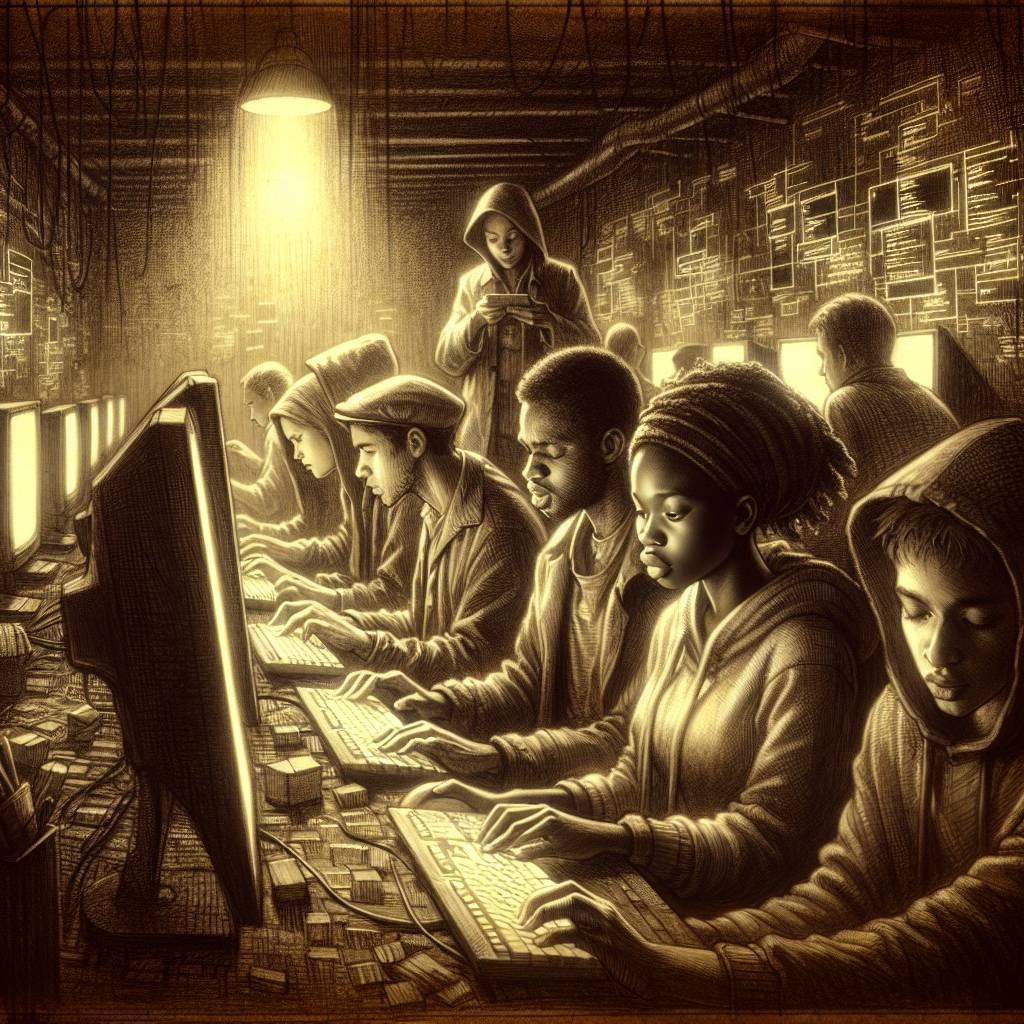Teen Hackers’ Wild Ride: Arrested for TfL Attack, Millions in Ransom, and Cryptocurrency Seizures!
Two teens from the Scattered Spider hacking group have been arrested for a cyber attack on Transport for London. One suspect, Thalha Jubair, allegedly raked in $115 million in ransoms and faces 95 years in prison. Clearly, these hackers are in a sticky web of trouble!

Hot Take:
Ah, the youth of today! Back in my day, teenagers were too busy trying to beat the high score on Tetris to even think about hacking into public transportation systems or conspiring to extort millions. But hey, at least these young hackers are making headlines for something other than TikTok dances!
Key Points:
- Two teen members of the Scattered Spider hacking group were arrested in the U.K. for a cyber attack on Transport for London.
- The attack caused significant disruption, with millions in losses for the city’s public transportation agency.
- One of the teens, Owen Flowers, was found to have targeted U.S. healthcare companies.
- Thalha Jubair faces charges in the U.S. for computer fraud, wire fraud, and money laundering.
- Victims of these cyber crimes paid at least $115 million in ransom payments.
Teenage Mutant Ninja Hackers
Two teenagers, Thalha Jubair and Owen Flowers, decided to ditch the usual teenage escapades like sneaking into R-rated movies or TPing houses. Instead, they opted for the thrilling world of cybercrime. Together, they allegedly took their talents to Transport for London, causing massive disruptions and losses. Clearly, these teens didn’t get the memo that you can’t just press CTRL+Z when life gets messy!
When Healthcare Meets Hack Scare
Owen Flowers, not content with just messing with London’s transport, allegedly turned his attention to U.S. healthcare companies. He must have thought, “Why stop with buses when you can also hack into life support systems?” Fortunately, the NCA nipped that in the bud. However, it turns out, Flowers was a busy bee, conspiring with others to infiltrate and damage the networks of Sutter Health and SSM Health Care Corporation. Talk about a different kind of healthcare plan!
Jubair’s Password Problem
Thalha Jubair had a little hiccup with the Regulation of Investigatory Powers Act (RIPA) 2000, which probably isn’t a fan-favorite bedtime read. The authorities wanted his passwords and PINs, but Jubair decided to play hard to get. This gave him another charge to add to his growing collection. Note to self: remember to share passwords when asked by law enforcement. Who knew?
The U.S. Wants In on the Action
The U.S. Department of Justice (DoJ) decided not to be left out and unsealed a complaint against Jubair. The charges? Just a casual mix of computer fraud, wire fraud, and money laundering. Apparently, Jubair and his crew were responsible for at least 120 network intrusions and extorted 47 U.S. entities. And here we thought American teens were the only ones networking online!
Ransom is the New Allowance
In a world where teens typically ask for allowance money, these guys demanded ransom. Victims paid at least $115 million to regain control of their systems. That’s a lot of money, even by Monopoly standards! Jubair’s alleged operations led to a seizure of cryptocurrency wallets, with digital assets worth about $36 million being confiscated. Clearly, these kids skipped the lemonade stand phase and went straight to the digital gold rush.
Jubair’s Future in the Slammer
As if playing the villain in a high-stakes video game, Jubair faces a maximum penalty of 95 years in prison if convicted. Remember, kids, hacking doesn’t pay (well, not in the long run). Alina Habba, Acting U.S. Attorney, highlighted Jubair’s sophisticated methods to remain anonymous while extorting millions. Maybe he thought he was playing a real-life version of “Catch Me If You Can,” but it turns out, the law enforcement agencies had the cheat code to catch him.
In conclusion, this tale of teen hackers serves as a reminder that crime doesn’t pay, unless you’re paying in years behind bars. Perhaps these young masterminds can join a prison chess club and use their strategic thinking for something a bit more legal. The moral of the story? Stick to video games, kids. They’re much safer!
